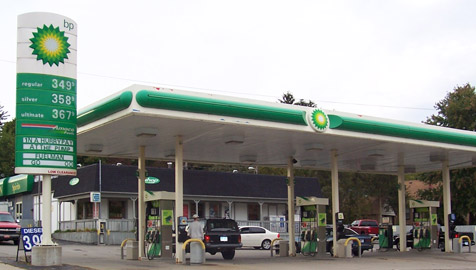Local firm Woble Investments, owned by businessman and banker Mr John Mushayavanhu, has managed to secure US$24 million funding that was needed to acquire a controlling 51 percent in Masawara Plc's energy portfolio
The portfolio was held through Masawara Energy Mauritius (MEM) - former BP & Shell assets - from Glencore Energy International United Kingdom.
The latest developments put to rest some market speculation about the nature of the transaction.
The oil deal set tongues wagging in the market, amid allegations that Woble was a proxy of Strauss Logistics, a UK-based company that was formerly a suitor for the coveted local assets.
Recently, Masawara announced that it had conditionally sold the business to Woble.
In an interview on the sidelines of FBC Holdings analyst briefing last week, Mr Mushayavanhu indicated that Woble had secured offshore funds for the acquisition, adding that FBC was in no way involved in the transaction.
"The Zuva transaction was totally an offshore transaction. It would have been totally wrong for us to borrow money from FBC. In actual fact, we got a 10-year loan from Glencore UK, who are also our product suppliers.
"We have already applied for regulatory approval from the Reserve Bank of Zimbabwe, which I am confident will be approved also by the indigenisation ministry," said Mr Mushayavanhu.
He said Woble and Masawara had also agreed a binding empowerment plan for the 73 former BP & Shell Marketing Services (BPSMS) assets.
There were questions from some quarters pertaining to Woble's source of funds, including the nature of the transaction, as Sakunda Energy was initially considered as the frontrunner to acquire Zuva.
It is believed that Sakunda had dangled US$30 million in cash for the stake, which was US$6 million more than Masawara's asking price.
This intensified the intrigue surrounding the manner in which the transaction was handled.
Market watchers say the petroleum business has always presented headaches to Masawara. There is a long catalogue of hiccups that Masawara faced when it tried to purchase the former BP & Shell assets.
Initially when the deal was forged, three entities, namely Masawara Group, Masawara Mauritius Limited and FMI Zimbabwe, were central to the transaction.
FMI Zimbabwe is wholly owned by MML, which, in turn, is owned by Masawara Group.
However, by the end of March 2011, MML had formed a joint venture with a Mauritian-based firm, Alveir Management Limited, with the former holding 51 percent and the latter having 49 percent in the resultant entity, Masawara Energy Mauritius (MEM).
MEM, which wholly owns FMI Energy Zimbabwe, now controls BP & Shell assets.
An observer has argued that MEM "has different DNA" to FMI Energy Zimbabwe, which was the initial applicant; and, therefore, cannot be compelled to comply with local empowerment legislation since it is based in Mauritius.
FMI Holdings, which controls the FMI group of companies, is an investment company incorporated in Zimbabwe under registration number 3181/90.
Its shareholders include: Listerton Investments, owned by the Mr Shingi Mutasa Family Trust, S. Mutasa and L. Mutasa; Invesco, which is considered an inactive shareholder with a 25,5 percent, and private investors based in the UK.
The mutation in the shareholding of the assets that are now housed under the Zuva Petroleum brand has riled the local authorities. Fears raised by the National Indigenisation and Economic Empowerment Board (Nieeb) then were that FMI Holdings shareholding in the Masawara Group had been diluted to 26 percent, which is below the approved threshold, and there was a possibility of it being whittled down further since the company had borrowed money from an "unknown bank" on October 31 2011 and offered US$50 million FMI Holdings shares as collateral.
Despite the challenge that was presented by Nieeb, the workers, dealers and other petroleum companies that were involved in the business were also opposed to Mr Mutasa's takeover. In October 2010, the Indigenous Petroleum Group of Zimbabwe wrote to Government alleging that the acquisition by Masawara was flawed and seemed to be "targeted to benefit specific interests".
The group argued that in the disposal of the assets, which include 73 retail sites, six country depots, four town depots and a lubricant plant, BP & Shell Marketing Services should have given the right of first refusal to those that already operated under leases. Similarly in February 2012, a local firm, Hughber Petroleum, owned by former Total Zimbabwe regional manager Mr Hubert Nyambuya, filed an application before the High Court for the deal to be nullified and for the company to be declared the winner since it had earlier filed a competing bid.
Also in October last year former BP & Shell employees approached the High Court of Zimbabwe challenging Masawara's acquisition, claiming that the new owners were reluctant to set up the 10 percent employee share ownership scheme in terms of Section 14 of the Indigenisation and Economic Empowerment (General) Regulations of 2010 as amended. This was a condition of the approval of the sale of Shell Zimbabwe (Pvt) Ltd and BP Zimbabwe (Pvt) Ltd to FMI Zimbabwe by the Minister of Youth Development, Indigenisation and Economic Empowerment in terms of Section 4 (1) (b) of the Indigenisation and Economic Empowerment Act (Chapter 14:33).
The workers claimed that they felt compelled to approach the High Court as prior efforts to push for the setting up of the employee share ownership scheme had been fruitless.
- sundaymail
 OK Zimbabwe posts US$17,8 million loss
OK Zimbabwe posts US$17,8 million loss  Hichilema meets Chivayo
Hichilema meets Chivayo  Millions celebrate Diwali festival in India
Millions celebrate Diwali festival in India  Econet Zimbabwe to delist from ZSE
Econet Zimbabwe to delist from ZSE  Gold edges up as traders await guidance
Gold edges up as traders await guidance  Mnangagwa fires Chitando, appoints Polite Kambamura
Mnangagwa fires Chitando, appoints Polite Kambamura  Young Investment Professional (YIP) Graduate Programme 2019
Young Investment Professional (YIP) Graduate Programme 2019 











 Young Investment Professional (YIP) Graduate Programme 2019
Young Investment Professional (YIP) Graduate Programme 2019
Editor's Pick